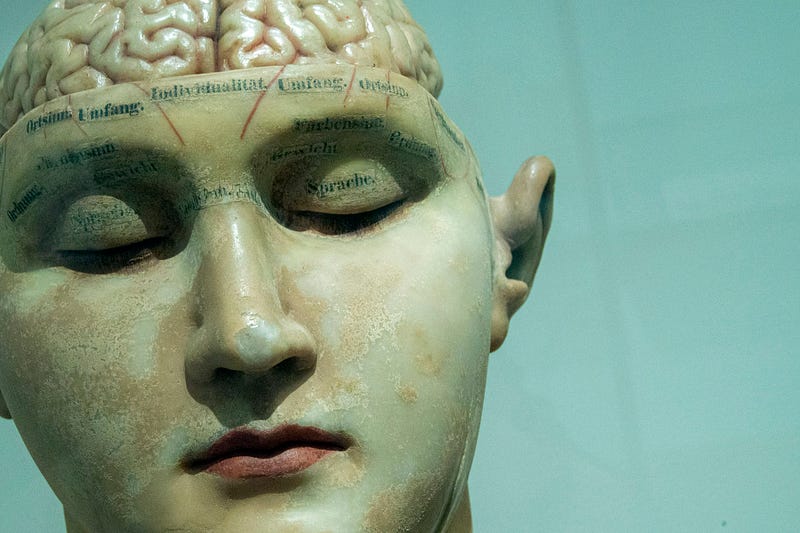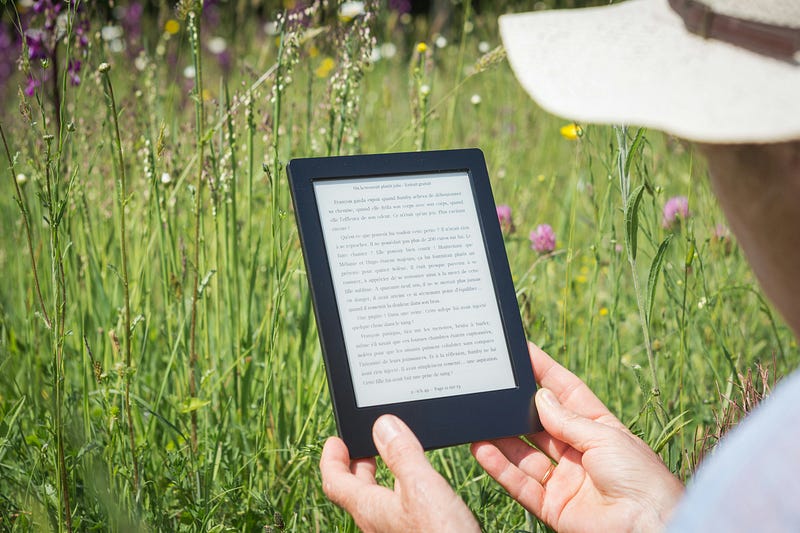Transformative Effects of Reading on the Human Brain
Written on
The Brain's Journey Through Literature
For avid readers, immersing oneself in a captivating book transports them into a realm of vivid imagery and emotions, often evoking personal feelings. While this may seem poetic, scientific evidence confirms that such experiences are indeed supported by our brain's activity during reading! Engaging with a story can alter our brain's structure, enabling us to empathize deeply with characters and even creating the illusion that we've lived through the events depicted. Join us as we explore the astounding transformations our brains undergo while we read.
- The Mind's Capacity for Visualization

Photo by David Matos on Unsplash
Reading texts, especially those accompanied by illustrations, not only entertains but also sparks the imagination, allowing us to craft new worlds within our minds. Surprisingly, this process occurs subconsciously, without any deliberate effort on our part. Even when reading descriptive texts without images, our minds instinctively generate visual representations of the scenes described.
- The Power of Listening to Stories

Photo by Josh Riemer on Unsplash
Some critics argue that audiobooks don't constitute "real" reading. However, studies reveal that listening to narratives can effectively stimulate brain activity. As we absorb a story, not only are the language-processing centers activated, but so too are the areas responsible for sensory experiences. For instance, hearing a description of a delicious meal can trigger our sensory cortex, making us imagine the taste and sight of the food. This phenomenon extends beyond audiobooks; our brains are constantly processing stories throughout the day, enhancing cognitive engagement.
Jeremy Hsu, a noted researcher, highlights that personal anecdotes and casual conversations comprise a significant portion of our daily interactions—65%, to be precise. So, the next time a colleague shares an elaborate story, take the time to listen. Engaging with narratives, whether through conversations, radio, or audiobooks, serves as excellent mental exercise.
- Experiencing Life Through Stories

Photo by Uriel Soberanes on Unsplash
Ever felt a profound connection to a narrative, as if it were your own experience? This occurs because our brains often cannot differentiate between fictional events and real-life experiences. When we read, the same neural pathways are activated as during genuine experiences, allowing stories to resonate deeply within us. Reading essentially creates a form of virtual reality, immersing us in alternate worlds.
- Diverse Reading Styles, Diverse Brain Engagement

Photo by Priyanka Singh on Unsplash
While reading inherently stimulates the brain, different genres and styles of literature yield varied cognitive benefits. Research conducted at Stanford University indicates that engaging with literary works fosters complex brain functions and overall cognitive exercise. Conversely, reading lighter texts may enhance blood circulation in other brain regions. Thus, delving into novels and reflecting on them offers a more stimulating experience than simpler reads.
- Language Learning and Brain Development

Photo by Ben White on Unsplash
For those seeking a challenge, reading novels in a foreign language can significantly enhance brain growth. A study at Lund University involving students from various disciplines revealed remarkable findings: participants' brains exhibited growth in critical areas such as the hippocampus and the cerebral cortex after three months of intensive language study, with growth correlating to individual learning efforts.
- Adapting to E-Books Quickly

Photo by Perfecto Capucine on Unsplash
Transitioning from traditional books to e-readers can be uncomfortable for some, but experts assert that our brains can adapt to new reading technologies in just a week, regardless of age or prior reading habits.
- E-Books and 3D Imaging Limitations

Photo by Aliis Sinisalu on Unsplash
Throughout human evolution, our brains have evolved to perceive and conceptualize physical spaces based on sensory cues. Reading physical books allows readers to gauge progress through page numbers, fostering anticipation. In contrast, e-books may create a sense of disorientation due to their lack of physical markers, although some digital formats attempt to replicate this experience.
- Story Structure and Cognitive Flexibility
Stories inherently possess a beginning, middle, and end, which benefits cognitive processing. This structure encourages logical thinking and the formation of cause-and-effect relationships. Regular reading enhances our brains' adaptability and extends our attention spans. Neuroscientists advocate for encouraging children to read widely to cultivate these skills from an early age.
- Transformative Changes in Brain Structure

Photo by JJ Ying on Unsplash
Not everyone is naturally inclined to read, and novice readers may not initially find joy in literature. However, with practice, their brain structures can evolve. Research at Carnegie Mellon University revealed that participants in a six-month reading program experienced growth in the white matter of the brain's language areas, suggesting that training can enhance cognitive function and foster a love for reading.
- The Empathy Boost from Deep Reading

Photo by Tim Marshall on Unsplash
Losing oneself in a book is a delightful experience that can significantly alter brain structure. By temporarily escaping from the mental and emotional demands of reality, deep reading allows us to connect with characters' emotions, ultimately enhancing our empathy and understanding of others' lives.
Thank you for taking the time to read this! If you found this information valuable, please share your thoughts in the comments. If you’re interested in more insights, follow me here on Medium and subscribe to my newsletter for updates!
Chapter 2: The Science of Reading and Its Impact
The first video, "Reading Changes Your Brain, Let Me Explain," delves into the cognitive shifts that occur when we read and how these affect our lives.
The second video, "How the Brain Learns to Read - Prof. Stanislas Dehaene," offers insights from a leading expert on the neurological processes involved in reading.